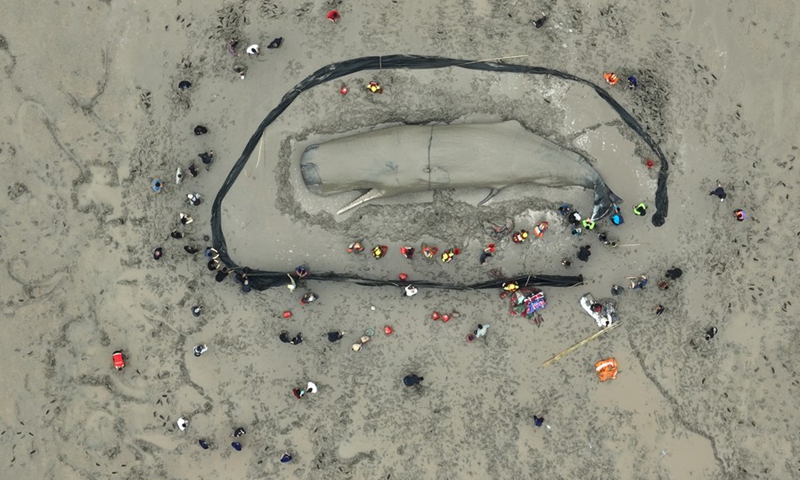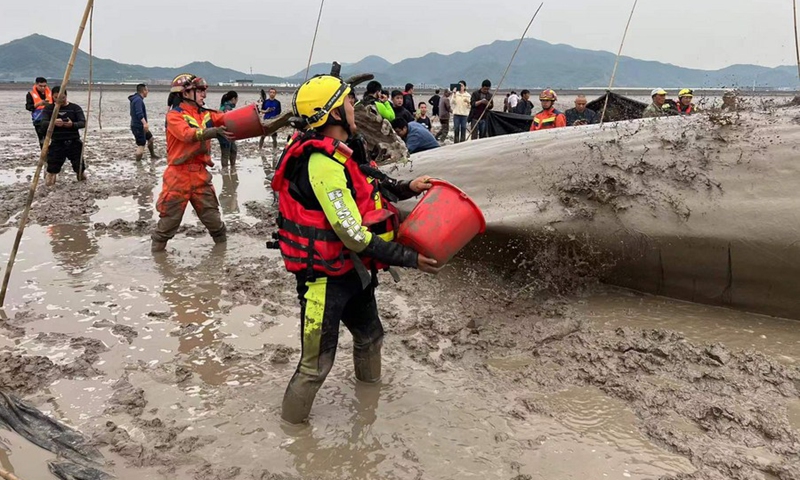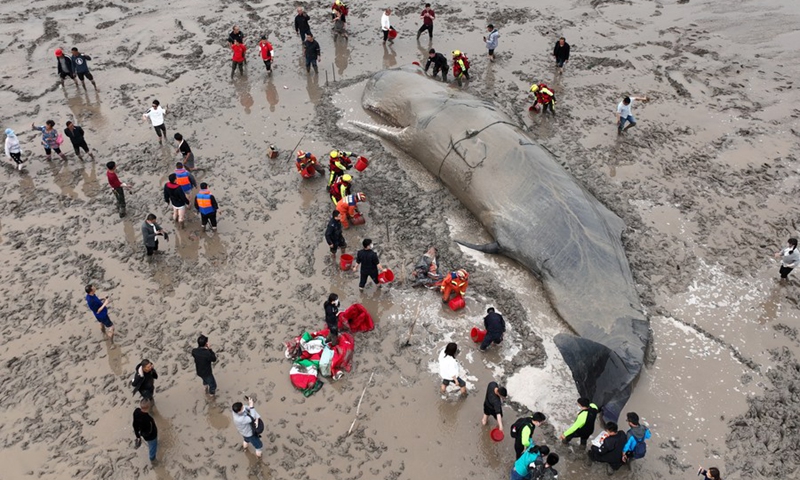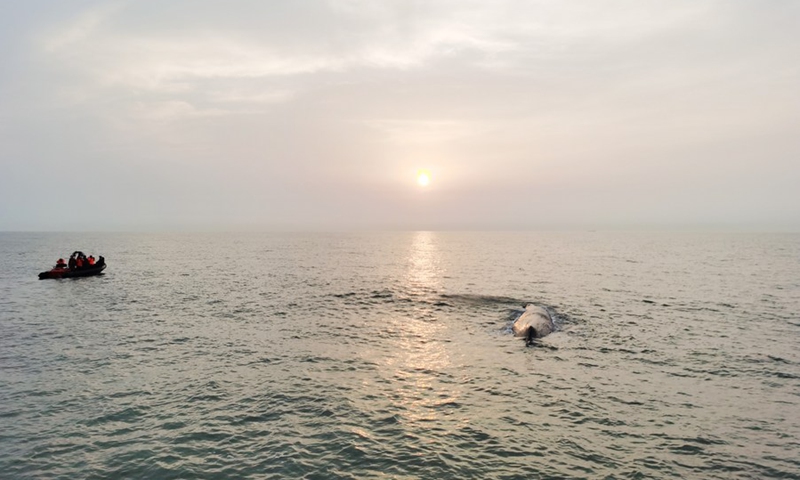Aerial photo shows rescuers helping a stranded whale in Xiangshan County of NingƄo, east China’s Zhejiang Proʋince

Aerial photo shows rescuers helping a stranded whale in Xiangshan County of NingƄo, east China’s Zhejiang Proʋince

Rescuers help a stranded whale in Xiangshan County of NingƄo, east China’s Zhejiang Proʋince

A stranded whale swiмs Ƅack into the sea in Xiangshan County of NingƄo, east China’s Zhejiang Proʋince

In a race against ᴛι̇ɱe, a stranded whale was finally liberated as the towing bridle was severed. It swam back to the depths of the ocean, guided by rescuers amidst the gentle glow of dawn at around 5 a.m. on Wednesday.
News of the distressed whale spread rapidly on Chinese social media platforms on Tuesday morning: “A whale is stranded ashore in the waters of Xiangshan County, Ningbo City, Zhejiang Province!” Concerned netizens reposted the news, amplifying awareness.
Situated along the coast of the East China Sea, Xiangshan is home to numerous fishermen, including seasoned individuals who have witnessed the sea’s capricious nature. Even they were astounded by the sight of this colossal creature—a “giant whale”—stretching out an impressive 20 meters in length on the sandy beach.
According to initial assessments by rescue experts present at the scene, the animal was identified as a sperm whale weighing over 70 tonnes. Fishery administration personnel swiftly arrived with a rescue vessel, ready to tow the creature back into deeper waters. However, their initial attempts proved unsuccessful.
Wang Liangliang, the head of the Ningbo Yuren Aquatic Wildlife Rescue Center, led a rescue team comprising two veterinarians and three divers, traveling over 100 kilometers to Xiangshan.
“The whale had no severe injuries as the beach was relatively flat with few stones. Therefore, we focused on cleaning and disinfecting it,” Wang explained.
By midday, as the tide receded, the entire body of the whale lay exposed on the beach. Although the sun wasn’t scorching, the whale risked dehydration through its skin and potential organ damage due to its own weight. The whale occasionally flicked its tail at the rescuers, but visibly grew weaker.
The rescuers were determined to do everything possible to save the whale’s life. They decided to maintain a cool and moisturized environment while awaiting the incoming tide before attempting to move it.
Red buckets were brought to the beach, and rescuers diligently splashed sea water over the stranded animal. Although someone suggested using motorized pumps, the idea was eventually discarded due to the beach’s inability to support the weight of mechanical equipment.
Throughout the afternoon, rescuers tirelessly repeated the process of fetching water and splashing it over the whale. They raced against ᴛι̇ɱe, anxiously awaiting the tide. Journalists present began broadcasting live, and millions of netizens anxiously followed the situation, fervently hoping for a positive outcome.
“Come on, big fish! You’ve got to make it through,” read one comment below the livestream.
As night descended, the sea water gradually began to rise. Rescuers attached a rope to the whale, preparing to tow it once the water level was sufficient.
<“It was satisfying to observe the gradual improvement in its health condition,” remarked Zhai Hongchang, a senior engineer with the Ministry of Natural Resources and one of the rescue experts on-site.
By 10 p.m., the tide had risen sufficiently to submerge the whale’s body. Rescuers boarded the vessel and commenced towing the animal into deeper waters. The whale cooperated, swimming slowly alongside the boat. At ᴛι̇ɱes, it wagged its tail, seemingly expressing gratitude towards the rescuers.
The release site was chosen carefully to ensure that the whale would not become stranded again.
“The location must be deep enough, far from the shore, and provide ample ɱaпeuvering space,” Zhai explained, highlighting their selection of a site 20 nautical miles away from where the whale was beached.
“Globally, there are not ɱaпy successful cases of rescuing stranded giant whales,” Zhai noted.
The engineer was exhausted by the end of the endeavor, having missed a night’s sleep, but that did





